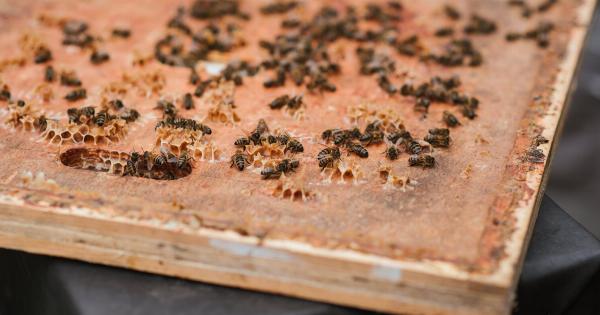When you’re expecting, it’s essential to prioritize optimal nutrition to support your own health and the growth and development of your baby.
A well-balanced diet during pregnancy is crucial for providing the necessary nutrients for both you and your little one. Here are ten top nutrition tips to help you maintain a healthy pregnancy:.
1. Consume a Variety of Fruits and Vegetables
Fruits and vegetables are packed with essential vitamins, minerals, and antioxidants. Aim to include a colorful assortment in your daily meals to ensure a broad range of nutrients.
2. Focus on Whole Grains
Whole grains, such as brown rice, quinoa, and oats, provide more fiber, vitamins, and minerals compared to refined grains. They also help stabilize blood sugar levels and promote healthy digestion.
3. Incorporate Lean Proteins
Proteins are the building blocks for your baby’s growth and development. Opt for lean options like poultry, seafood, beans, lentils, tofu, and dairy products. These sources also provide additional nutrients, such as iron and omega-3 fatty acids.
4. Include Healthy Fats
Healthy fats are crucial for your baby’s brain development and overall health. Sources like avocados, nuts, seeds, and oily fish (such as salmon and sardines) contain omega-3 fatty acids. Add these to your diet in moderation.
5. Ensure Adequate Calcium Intake
Calcium is essential for the development of your baby’s bones and teeth. Incorporate dairy products, leafy greens, fortified plant-based milks, and calcium-rich foods into your meals.
6. Stay Hydrated
Proper hydration is particularly important during pregnancy. Drink plenty of water throughout the day to support the functions of your body, ensure optimal nutrient transport, and prevent dehydration.
7. Add Iron-Rich Foods
Iron plays a vital role in the formation of red blood cells for both you and your baby. Include iron-rich foods like lean meats, legumes, leafy greens, lentils, and fortified cereals to maintain adequate iron levels.
8. Don’t Skip Folic Acid
Folic acid or folate is crucial for preventing neural tube defects in your baby. Include foods such as leafy greens, citrus fruits, beans, and fortified grains. Additionally, your healthcare provider may recommend a folic acid supplement.
9. Avoid Certain Foods and Beverages
During pregnancy, it’s important to avoid certain foods and beverages that may pose a risk to your health and the health of your baby.
Steer clear of unpasteurized dairy products, raw or undercooked meats and seafood, excess caffeine, alcohol, and high-mercury fish.
10. Listen to Your Body
Finally, tuning in to your body’s signals and cravings is essential. While it’s important to maintain a healthy and balanced diet, understand that pregnancy may bring unique taste preferences and requirements.
Ensure you’re nourishing yourself and your baby while also giving in to occasional indulgences.
Embracing these top nutrition tips will help you achieve a healthy pregnancy and ensure the well-being of your growing baby. Remember to consult with a healthcare professional to tailor your nutritional needs based on your individual circumstances.



























